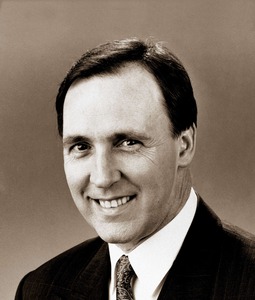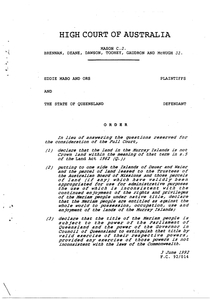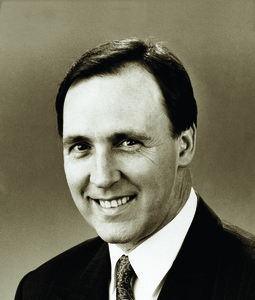Paul John Keating
Paul Keating (b.1944) began his political career early, helping his father hand out leaflets in Bankstown during the great Labor Split of the 1950s. He left school at the age of 15 to work as a clerk. In 1969 Keating was elected to the House of Representatives. He became the youngest Federal Labor minister in history, but served for only three weeks because of the dismissal of Gough Whitlam’s government. He was Treasurer in the Hawke government, but found himself on the backbench after unsuccessfully challenging Bob Hawke for the Labor leadership in 1991. Later that year he again challenged Hawke, this time successfully. His government was defeated in the 1996 federal election.
Events
Paul Keating becomes Prime Minister
Former Treasurer Paul Keating successfully challenges Bob Hawke for leadership of the Labor Party and replaces Hawke as Prime Minister. The Keating government floats the Australian dollar, is a driving force behind the creation of the Asia-Pacific Economic Cooperation (APEC) forum, establishes the Republic Advisory Committee to examine options to make Australia a republic, and reacts to the High Court’s 1992 Mabo Decision by enacting Australia’s first native title legislation. For more information, visit the Australian Prime Ministers Centre.
TAGS

Native Title Act 1993
Following recognition of the legal concept of native title by the High Court in the Mabo Case in 1992, the Keating government enacts the Native Title Act 1993. The Act attempts to clarify the legal position of landholders and the processes that must be followed for native title to be claimed, protected and recognised through the courts.
TAGS



